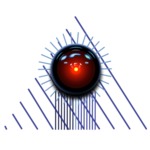 | IJCAI-ACD 2021: IJCAI First International Workshop on Adaptive Cyber Defense Virtual Montreal, Canada, August 21-23, 2021 |
| Conference website | https://acd-2021.org/ |
| Submission link | https://easychair.org/conferences/?conf=ijcaiacd2020 |
| Abstract registration deadline | May 14, 2021 |
| Submission deadline | May 14, 2021 |
| Paper Acceptance Notifications | May 25, 2021 |
| Workshop Dates | One Day Event, Date TBD |
Call for Papers
Building on recent advances in Artificial Intelligence (AI) and Machine Learning (ML) the Cyber defense research community has been motivated to develop new dynamic and sustainable defenses through adaptive cyber defense. The cyber domain cannot currently be reliably and effectively defended without extensive reliance on human experts. Skilled cyber defenders are in short supply and often cannot respond fast enough to cyber threats.
With the growing adoption of AI and ML techniques to both cyber and non-cyber settings, there is an increasing need to bridge the critical gap between AI and Cyber research and practitioners. We must accelerate our efforts to create semi-autonomous cyber defenses that can learn to recognize and respond to cyber attacks or discover and mitigate weaknesses in cooperation with other cyber operation systems and human experts. Furthermore, these defenses must be adaptive, and able to evolve over time to take into account changes in attacker behavior, benign changes in the systems, and expected drift in user behavior over time.
The ACD Workshop will focus on sharing research that explores unique applications of AI and ML as an emerging technology underpinning foundational capabilities of adaptive cyber defense. The Workshop will be comprised of technical presentations and a panel discussion focused on open problems and potential research solutions. This domain consists of challenging problems of critical importance to national and global security. Participation in this workshop will offer potentially unprecedented opportunities to stimulate research and innovation in this area.
Submission Guidelines
Authors are encouraged to submit to one of the following categories:
- Full Research Paper: Papers may be up to 5-7 pages in length, excluding references. The authors are expected to present new work representing a contribution to the field.
- Position Papers: Papers may be up to 2-4 pages in length, excluding references. The authors are expected to present position papers and open research challenges that will generate interest within the broader AI community.
Submissions should be in the IJCAI-21 format. The review process is double-blind for full and position papers (author names and affiliations must be hidden). Papers will be judged according to the chosen category, significance to the workshop, proposal quality, and clarity.
Formatting guidelines, LaTeX styles, and Word template: https://www.ijcai.org/authors_kit
Accepted papers will initially be published on the ACD website. We will be pursuing the option of a special edition journal publication for accepted papers.
The workshop will be held as part of the IJCAI 2021 Conference and all events will be held virtually.
Topics of interest include (but are not limited to):
- Autonomous and semi-autonomous reasoning and response for cyber domains.
- Human-machine teaming for adaptive defense systems.
- Artificial intelligence (AI) and machine learning (ML) for cyber environments.
- Reasoning and course of action (COA) decision making in cyber operations.
- Predictive analytics for proactive stance to cyber threats and opportunities.
- Cognitive modeling of cyber defenders and attackers.
- Multi-agent and distributed AI solutions for semi-autonomous collaboration for cyber operations.
- Automated intrusion detection and response, including AI additions to Security Orchestration, Automation and Incident Response (SOAR).
- Moving target defenses with adaptive (rather than random) strategies.
- Command and control for automated cyber response.
- Cyber simulation environments developed for testing and validation of AI techniques.
- Realistic models of human behavior in cyber domains
- Explorations of problem similarities between cyber and non-cyber domains.
- Adaptive cyber defense use cases and issues with adoption.
Organizing Committee
Program Chairs
- Damian Marriott, Defence Science and Technology Group, Australia
- Kimberly Ferguson-Walter, Laboratory for Advanced Cybersecurity Research, USA
- Sunny Fugate, Naval Information Warfare Center, Pacific, USA
- Marco M. Carvalho, Florida Institute of Technology, USA
Program Committee
- Adrian Taylor, Defence Research and Development Canada
- Ahmad Ridley, Laboratory for Advanced Cybersecurity Research
- Barry Chen, Lawrence Livermore National Laboratory
- Chin-Teng Lin, University of Technology Sydney
- Christopher Kiekintveld, University of Texas at El Paso
- Cliff Wang, Army Research Office
- Coty Gonzalez, Carnegie Mellon University
- David Burke, Galois, Inc.
- David Garlan, Carnegie Mellon University
- Dustin Fraze, Defense Advanced Research Projects Agency
- Ehab Al-Shaer, University of North Carolina
- George Cybenko, Dartmouth College
- Hanna Kurniawati, Australian National University
- Jeff Johns, FireEye
- Joseph R. Langley, U.S. Naval Research Laboratory
- Julian Rrushi, Oakland University
- Li Li, Defense Research and Development Canada
- Mark Bilinski, Naval Information Warfare Center Pacific
- Neil Rowe, Naval Postgraduate School
- Robert Gutzwiller, Arizona State University
- Ryan Gabrys, Naval Information Warfare Center, Pacific
- Shane Shaneman, Carnegie Mellon University
- Steve Danko, U.S. Department of Defense
- Temmie Shade, National Security Agency
- Toby Richer, Defence Science and Technology Group
- William Streilein, MIT Lincoln Laboratory
- Yan Shoshitaishvili, Arizona State University
Venue
The workshop will be held as part of the IJCAI 2021 Conference and all events will be held virtually. More information on the IJCAI 2021 conference can be found at https://ijcai-21.org/. Additional workshop details can be found on the workshop website at https://acd-2021.org/.
Contact
All questions about submissions should be emailed to ijcai.acd.workshop@gmail.com
